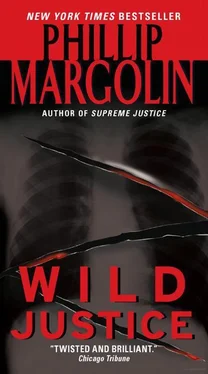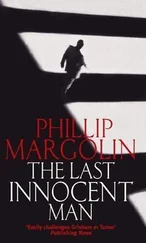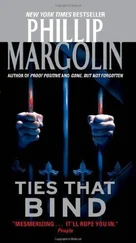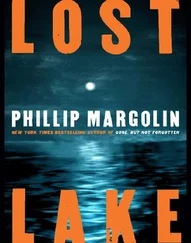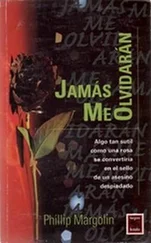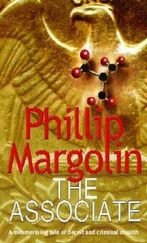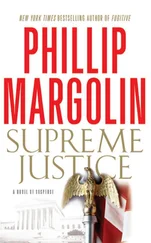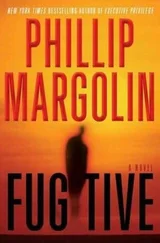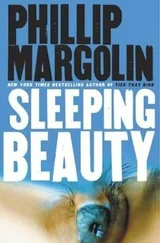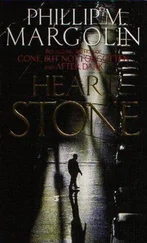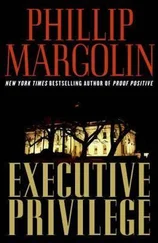While Dr. Grace talked, Vasquez studied the corpses. All of the victims seemed pathetically frail and defenseless. Their rib cages showed. Their shoulder blades looked sharp and visible under their translucent skin, more like wire hangers than bones. Vasquez wanted to do something to comfort the dead, like brushing off the clumps of dirt that clung to their pale skin or laying a blanket over them to keep them warm, but none of that would help now.
When Dr. Grace finished her briefing, McCarthy wandered up and down the row of corpses. Vasquez watched him work. McCarthy gave eight of the bodies a cursory examination, but he squatted next to the seemingly untouched middle-aged male and withdrew another Polaroid from his jacket pocket. McCarthy glanced back and forth between the photograph and the corpse, then spent a few moments in deep thought. When he stood up he summoned the medical examiner. Vasquez could not hear what the detective said, but he watched Dr. Grace squat next to the corpse and examine the back of its neck. She beckoned McCarthy and he squatted next to her, nodding as she pointed to an area of the neck and gestured with her hands.
Thank you, Dr. Grace, McCarthy said to the medical examiner. He stood up.
Want to fill us in, Detective? Scofield asked, making it clear that he did not appreciate mysterious behavior in a fellow investigator.
McCarthy started back toward the cabin. About a month ago, a detective from Montreal contacted me with information about an ailing Canadian millionaire who was negotiating with Martin Breach to secure a heart on the black market. Do you know who Breach is?
Scofield and Vasquez nodded.
We've long suspected that Breach has a small but lucrative sideline: the sale of human organs on the black market to wealthy individuals who are unwilling to wait for a donor. We also suspected that the organs are frequently obtained from unwilling donors. The investigation in Canada included wiretaps. Dr. Clifford Grant was mentioned several times. He was a surgeon at St. Francis Medical Center. McCarthy showed them the photograph he had examined earlier, then nodded back toward the bodies. He's the middle-aged victim who bore no marks of torture.
Scofield and Vasquez examined the picture, and they walked in silence for a while. When Scofield returned the photo the homicide detective continued.
We put Grant under twenty-four-hour surveillance as soon as we learned he was going to be involved in harvesting the heart. A few evenings after we received the tip, Grant was observed picking up a cooler from a locker at the bus station and placing it in the trunk of his car. If the cooler contained the heart, Grant could not have been the person who harvested it. You've only got a leeway of four to six hours between removing a heart and transplanting it into the body of the new recipient, and Grant was under constant surveillance. That meant that Grant had a partner.
Cardoni, Vasquez said.
Possibly.
Scofield lit a cigar and took a few puffs. The smoke curled up and spread out until it disappeared.
I was one of several officers who followed Grant to a private airfield. We observed Art Prochaska, Martin Breach's lieutenant, place an attachT case in Grant's car. Grant spotted us and took off before giving Prochaska the cooler. A few days later his car was discovered at the long-term parking lot at the airport.
And now we've found Grant and the operating room where the organs were harvested, Vasquez said.
And since we found Grant here, Scofield added, it's not much of a stretch to say that Grant's partner probably killed him.
They walked in silence for a few moments. As they came in sight of the cabin, Vasquez put out his hand to stop McCarthy.
I want to ask you a favor, he said. I want Breach, and I want Cardoni. I want to be part of this investigation. It was my case to begin with. I don't want to be cut out. What about it?
McCarthy nodded thoughtfully.
Let me talk to some people. I'll see what I can do.
Chapter 13
Frank Jaffe was an excellent storyteller. Amanda's favorite tale was the account of her miraculous birth, which Frank told her for the first time on her fifth birthday during a visit to Beth Israel cemetery. It was terribly cold that afternoon, but Amanda didn't notice the raw wind or the stark gray and threatening sky, so intense was her concentration on the grave of Samantha Jaffe, born September 3, 1953, died March 10, 1974. The headstone was small because Frank had not been able to afford elegance when he purchased it. The grave lay beneath the swaying leafless branches of an ancient maple tree, third in from a narrow road that roamed through the graveyard. Frank had gazed with sad eyes at the headstone. Then he had looked down on his little girl. Amanda was all that was good in the world and the reason that Frank persevered. In his mid-twenties Frank had been tall and strong, but a single father who worked all day and struggled in law school each night needed more than strength and youth to keep from folding.
You were born on March the tenth, Frank had begun, coincidentally the very same day as today, at three-oh-eight in the afternoon, which is almost the time it is now, in the year nineteen hundred and seventy-four.
At three-oh-eight in the afternoon?
Three-oh-eight on the dot, Frank assured her. Your mother was lying in a wide bed on soft white sheets....
How did she look?
She was smiling a wonderful smile because she knew you were about to be born, and that smile made her look like an angel the most beautiful of angels. Except, of course, she didn't have wings yet.
Did she get wings?
Certainly. It was part of the bargain, but the angel and your mother did not make their bargain right away, so your mother had to wait for her wings.
When did the angel come?
She appeared in the hospital in your mother's room just as you were about to be born. Now, angels are usually invisible, but your mother could see this angel.
Only my mother?
Only your mother. And that was because she was so like an angel herself.
What did the angel say?
' Samantha,' she said, in a voice that sounded like a light rain falling, ' God is very lonely in heaven and he wants you to visit.' ' Thank God for me,' your mother said, ' but I am about to bring a wonderful baby girl into the world, so I must stay with her.' ' God will be very sad to hear that,' the angel replied. ' It can't be helped,' your mother told the angel. ' My little girl is the most precious little girl in the world, and I love her to bits. I would be very sad myself if I couldn't be with her always.'
What happened then?
The angel flew back to heaven and told God what your mother had said. As you can imagine, God was very sad. He even cried a few tears. But God is very smart and an idea occurred to him, so he sent the angel back to earth.
Did the angel tell Mother God's idea?
She certainly did. ' Would you come and visit God in heaven if you could be with your little girl always?' she asked. ' Of course,' your mother answered. She was a wonderful person and never liked to see anyone sad. ' God has an idea,' the angel told your mother. ' If you will come with me right now, God will put your soul in your little girl, right next to her heart. Then you will be with her always. It will even be better than the way other mothers are with their children. You'll be with her everywhere she goes, even if she is at school or on the playground or on a trip.' ' How wonderful,' Samantha said, and she shook hands with the angel to seal the bargain.
Then what happened?
A miraculous thing. As you know, you can't get to heaven unless you die, so your mother died, but she didn't die until the second that you opened your mouth and took your first breath. When your mouth was its widest, the soul of Samantha Jaffe jumped right inside of you and went straight to a spot next to your heart.
Читать дальше
